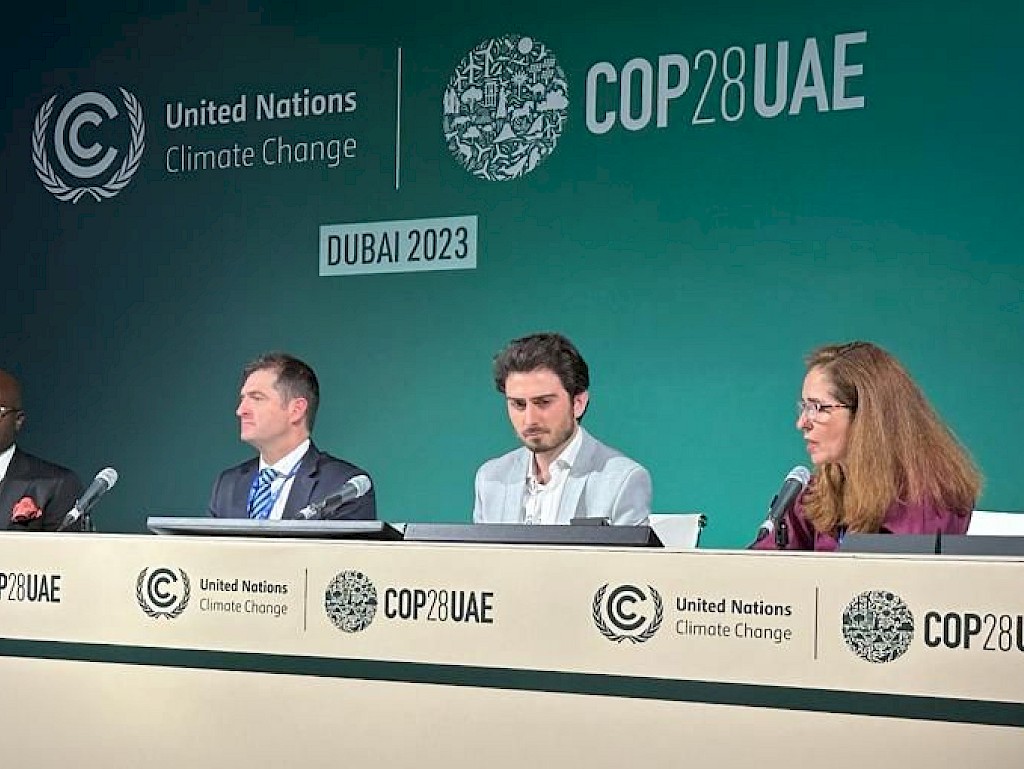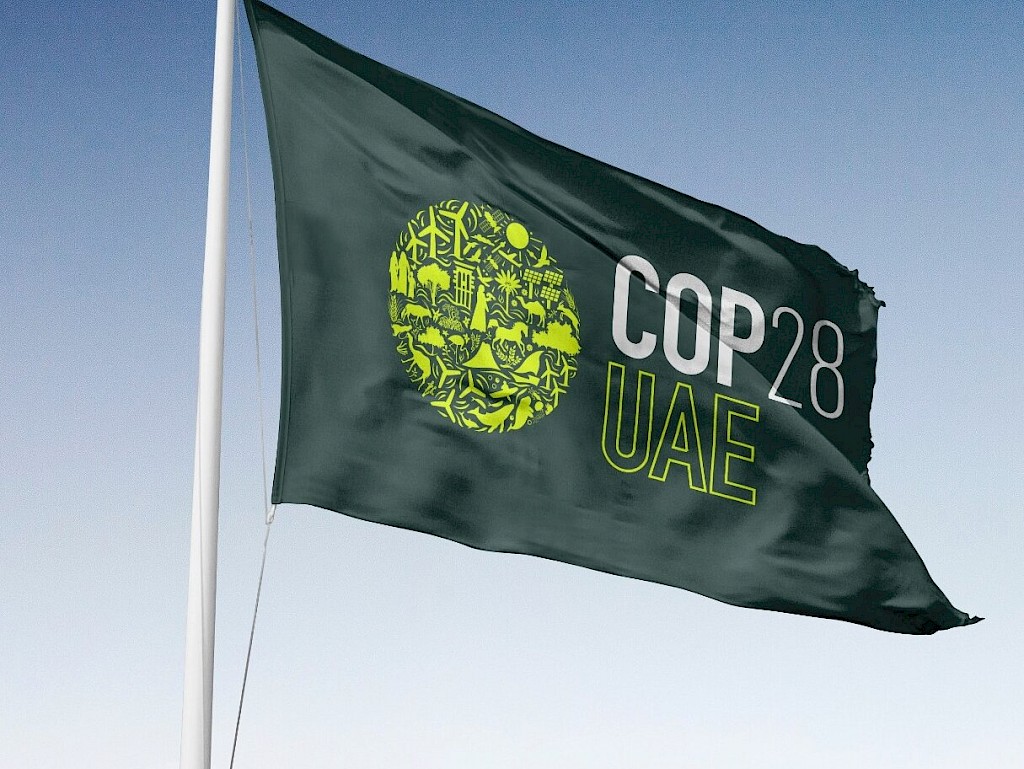From 7 to 19 December world leaders will gather in Montreal at the UN Convention on Biological Diversity (CBD) COP15 to ratify the Global Biodiversity Framework (GBF). Ipieca-IOGP Biodiversity and Ecosystem Services (BES) Working Group Chair Steven Dickinson (TotalEnergies) discusses the importance of landing an ambitious GBF and the role of Ipieca and the industry in supporting its aims.
Why is COP15 so important?
COP15 is important for nature, climate and humanity. The recent landmark IPBES Global assessment report on biodiversity and ecosystem services report states that up to 1 million species are facing extinction, so it's fair to say that we are facing a nature crisis. And this has a direct connection with climate change. Nature can act as a buffer to some of the worst extremes of climate change and act as carbon sinks to absorb and store carbon dioxide. But nature is in turn affected by climate change, which is considered the third biggest threat to it. And while we can see the effect that climate change has in recent floods and heatwaves, the impact that nature has on humanity is not so well understood. Put simply, every breath of fresh air we take comes from nature. The startling fact is that nature loss is one of the biggest threats to humanity.
COP15 is all about bringing world leaders together to address and reverse nature loss, and a key element of the meeting is to agree on a GBF which will provide the world with a framework to tackle the nature crisis we are facing.
Can you tell us a bit more about the GBF?
Sure. So, the GBF is being referred to by many people as the Paris Agreement for nature and is what leaders from countries around the world are going to be discussing at COP15.
At the heart of the GBF is the concept of nature positive, where by 2030 we have bent the curve of nature loss to a neutral situation and then go on to add to nature - the idea is that we go from less nature to more nature.
The CBD has a vision that by 2050 the world will live in harmony with nature. To achieve this vision, the GBF sets 21 action-oriented targets for urgent action over the decade to 2030. The actions set out in each target need to be initiated immediately and completed by 2030. Together, the results will enable the achievement of CBD's 2050 vision.
We have a draft version of the GBF in place, which Ipieca has played a role in helping to shape, providing industry technical feedback on making those targets relevant to the industry as ambitious as possible. The work at COP15 is to get governments to agree on it. At my last glance, I saw that the draft GBF had over 900 negotiations points in it - so the negotiators are going to have a busy few weeks in Canada. However, I am confident that we can finalise the GBF at COP15.
What's the industry's role in the GBF?
If we hold the good thought that we will come away from COP15 with the GBF agreed upon and adopted by all nations, then while governments will be primarily responsible for delivering the targets set by the GBF, the regulations and strategies they set to do so will trickle down and affect every sector. Successful implementation of the GBF will require businesses to mainstream biodiversity.
The GBF includes a target on 30% land and sea areas protected by 2030. The industry can make a material impact on this target, by making sure operations - which are often offshore as well as onshore - are designed and managed to avoid, minimise, restore, and offset environmental risks. The industry can go beyond managing risks to also embed nature positive concepts into their operations, for example, well designed projects can even act as biodiversity corridors supporting healthy, growing ecosystems.
In the oil and gas industry, my hope is that we'll see companies making nature positive contributions commitments in the same way they are now making net-zero commitments. This would recognise the importance of nature, but also reflect the fact that the two are connected - by working on one you'll make progress on the other.
You'll be part of the Ipieca delegation at COP15. What is Ipieca's role at COP15?
The Ipieca delegation includes Ipieca secretariat members as well as biodiversity experts from Ipieca member companies. This is a real value add to stakeholders attending from UN, IGO and NGO organizations - Ipieca provides the opportunity to engage with a significant part of the industry in one go, accelerating action or facilitating insights from the industry. The convening power of Ipieca is a really big deal for these stakeholder groups.
On site one of the key things for the delegation is to listen to the negotiations - as a non-lobby group, Ipieca is not involved in the negotiations - understand what they mean for the industry and then feedback the outcomes to members and make sure our Ipieca workstreams are aligned with the objectives set by COP15.
While there we are going to take part in events, workshop and meetings focused on supporting businesses to implement biodiversity action, where we will bring an understanding of how to support energy businesses to do so. At COP15 we've actually been awarded an official event with IUCN on 'Mainstreaming biodiversity in oil and gas and alternative energies'. We'll also be hosting a Cross-Sector Biodiversity Initiative (of which Ipieca is a founding member) event on 'Nature positive: the emerging business as usual'.
COP15 in Montreal is the final stage of a long journey towards developing and launching the GBF - prolonged by COVID postponements - one that Ipieca has been involved in pretty much every step of the way. As I mentioned earlier, we provided industry technical feedback on draft versions of the GBF, making sure it is ambitious as possible. We also took part in the pre-COP15 technical workshops, which are designed to provide the negotiators with the information they need to make decisions. We were also heavily involved in supporting the GBF implementation documents which are being developed alongside the GBF and pleasingly Ipieca inputs have been cited in these documents.
While Montreal is where all the work of the last two years will, hopefully, all come together, it's actually been two years of hard work from everyone involved to get to the point where we have a game changing framework to conserve and restore nature.
What will Ipieca's role be when the GBF lands?
When the GBF lands it needs to be turned into on the ground action if we are to make the CBD 2050 vision a reality. Ipieca is all about implementation. For decades now we've been bringing nature experts from our members companies together with key stakeholders to share knowledge and distil that knowledge into operational good practice guidance.
Ipieca has been involved in the CBD process since the first COP was held in 1994, and our work on biodiversity and ecosystems services (BES) is underpinned by the UN CBD. The Ipieca-IOGP BES Working Group shares knowledge and develops industry good practice to support an environmental risk-based approach to managing BES, to enable companies to implement the mitigation hierarchy and to mainstream nature positive across the industry. When the GBF lands, given our involvement throughout its development we'll be in a great position to support its roll out and operationalisation across the industry through knowledge sharing sessions and the development of good practice.
About Steven Dickinson
Steven is the Corporate Biodiversity Expert at TotalEnergies. He oversees the company's biodiversity programme, including policy, rules, tools and partnerships development. Steven has a technical advisory role, across the company's value chain, for biodiversity impact assessment and management. In 2018 he spearheaded the company's adhesion to the 'Act4Nature' initiative which resulted in a new set of CEO-lead public biodiversity commitments. In 2020 he led at ExCom level the group's 2020-2025 Biodiversity Ambition, as a contribution to the UN CBD's post 2020 Global Biodiversity Framework. In 2021, Steven was nominated by IPBES as expert to assist with the scoping of a methodological assessment of business and biodiversity. He is actively engaged with the UN CBD as the sector representative for the CBD's Informal Advisory Group on Mainstreaming of Biodiversity, as part of the COP15 preparation process.
The views expressed in this interview are those of the interviewee and are not attributable in any way to any organization with which he may be affiliated.



